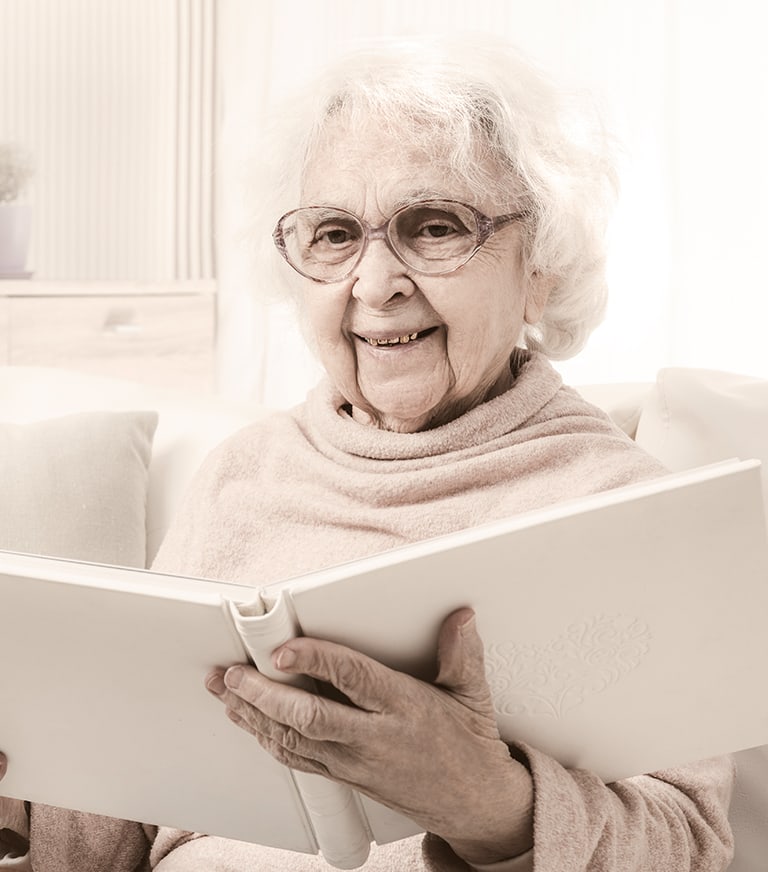It’s not always easy to recognize when more help is needed. For many older adults, changes happen gradually. They can develop as small shifts in health, habits, or even mood. But when those changes start piling up, they can make daily life harder to manage. That’s when it’s time to start thinking about assisted living or another senior living lifestyle for yourself or your loved one.
Some signs it’s time to consider assisted living include:
- Physical struggles and health changes
- Memory issues and confusion
- Trouble keeping up with responsibilities
- Emotional withdrawal and isolation
- Home safety becomes a concern
- Caregiver stress and overload
Physical Struggles & Health Changes
As we age, staying physically active and independent can become more challenging. Mobility issues or changes in basic routines are often the first signs that support could make a difference.
Trouble with Movement
Shuffling feet, difficulty rising from a chair, or frequent falls can signal a shift in mobility. These challenges may lead to injuries or long periods of inactivity. In assisted living, safety features and support can reduce these risks while promoting independence.
Neglecting Hygiene
If showers are skipped, teeth go unbrushed, or clothing isn’t changed regularly, it may point to physical fatigue or fear of falling. Poor personal hygiene can lead to health concerns and emotional distress—two areas where assisted living can help.
Weight Loss or Poor Nutrition
Relying on snacks, forgetting meals, or losing interest in cooking can all impact health. Older adults may not realize they’re losing weight until it becomes noticeable. With routine meals and social dining, assisted living makes healthy eating more consistent.
Memory Issues & Confusion
Mild forgetfulness can be part of normal aging. However, increasing confusion or disorientation may indicate something more serious. These changes may affect routines, medication, or safety.
Daily Forgetfulness
Everyone forgets things now and then. But when your loved one repeatedly loses items, misses appointments, or forgets common tasks, it may reflect more than simple distraction.
Signs of Cognitive Decline
Getting lost, repeating the same story, or mixing up medication are warning signs. If you’ve noticed any of these common symptoms, it may be time to explore professional care.
Worsening Dementia Symptoms
More severe symptoms—like wandering or trouble recognizing people—often signal the need for increased care. While not every case is dementia, progressive memory conditions often benefit from the structure and stability offered by senior living.
Trouble Keeping Up with Responsibilities
Even simple tasks can feel overwhelming with age. If your loved one seems behind on chores, mail, or medication, it might be a sign that extra help is needed.
Household Tasks Become Overwhelming
Piles of laundry, clutter, or neglected home maintenance are signs that household chores have become too much. Assisted living takes care of these tasks and creates a clean, stress-free environment.
Managing Money Is a Challenge
Confused bank statements or stacks of unpaid bills may be a sign that financial tasks are slipping. This can be frustrating and stressful—not just for them, but for the family, too.
Medications Are Missed or Misused
Taking too much, not enough, or skipping entirely can put a senior at serious risk. Medication help in assisted living includes scheduled support and reminders to reduce this concern.
Emotional Withdrawal & Isolation
Humans are social beings. If your loved one has stopped joining conversations or isn’t as cheerful as before, it may be more than just a bad week—it could be loneliness.
Loss of Social Interest
Withdrawing from friends, avoiding phone calls, or skipping family dinners might signal emotional fatigue. Social isolation can lead to both physical and mental health changes over time.
Mood or Personality Shifts
Changes in mood, irritability, or disinterest in once-loved hobbies may reflect deeper challenges. Without daily connection, it’s easy to lose a sense of self.
Limited Social Opportunities
Sometimes the issue isn’t that your loved one doesn’t want to connect—it’s that they can’t. A lack of transportation, safe spaces, or energy can lead to long stretches of quiet days. In senior care communities, connection is built into daily life, often through events and activities.

Home Safety Becomes a Concern
Most homes aren’t designed with aging in mind. Even routine setups can pose a risk to older adults who live alone. However, a safe environment is key to quality of life.
Environmental Hazards at Home
Tight hallways, steep stairs, or bathtubs without railings increase the risk of falls—one of the leading causes of injury in older adults. Assisted living spaces are designed to reduce those risks and keep your loved one safe every day.
Frequent Accidents or Close Calls
If your loved one has had a recent fall, burn, or other injury, they may need more eyes on their daily routine. Quick response systems in assisted living can offer reassurance to your entire family. This helps give you all peace of mind.
Ongoing Health Monitoring Is Needed
When regular check-ups are missed or symptoms go unnoticed, there’s a risk of small issues becoming bigger. In a community setting, changes are easily observed and addressed.
Caregiver Stress & Overload
Caring for a loved one can be deeply meaningful, but also incredibly demanding. If you’re feeling overwhelmed, you’re not alone.
Physical & Emotional Fatigue
When the day ends with exhaustion more often than peace, it may be time to step back and reassess. Assisted living isn’t about letting go—it’s about getting help where it’s needed.
Negative Effects on Caregiver Health
Trouble sleeping, missed work, and persistent anxiety are all signs of burnout. Long-term stress can lead to physical illness, which helps no one. If you notice the signs of burnout, it’s time to think about assisted living.
Recognizing the Right Time for Extra Help
If you’re noticing signs across more than one category, it’s time to try assisted living. The goal is never to take something away, but to offer more of what matters: comfort, connection, and safety.
Here at Valora Senior Living of St. Anthony, we’re here to help. Book a tour with our community today—we’d be happy to talk about what support could look like for your loved one.



